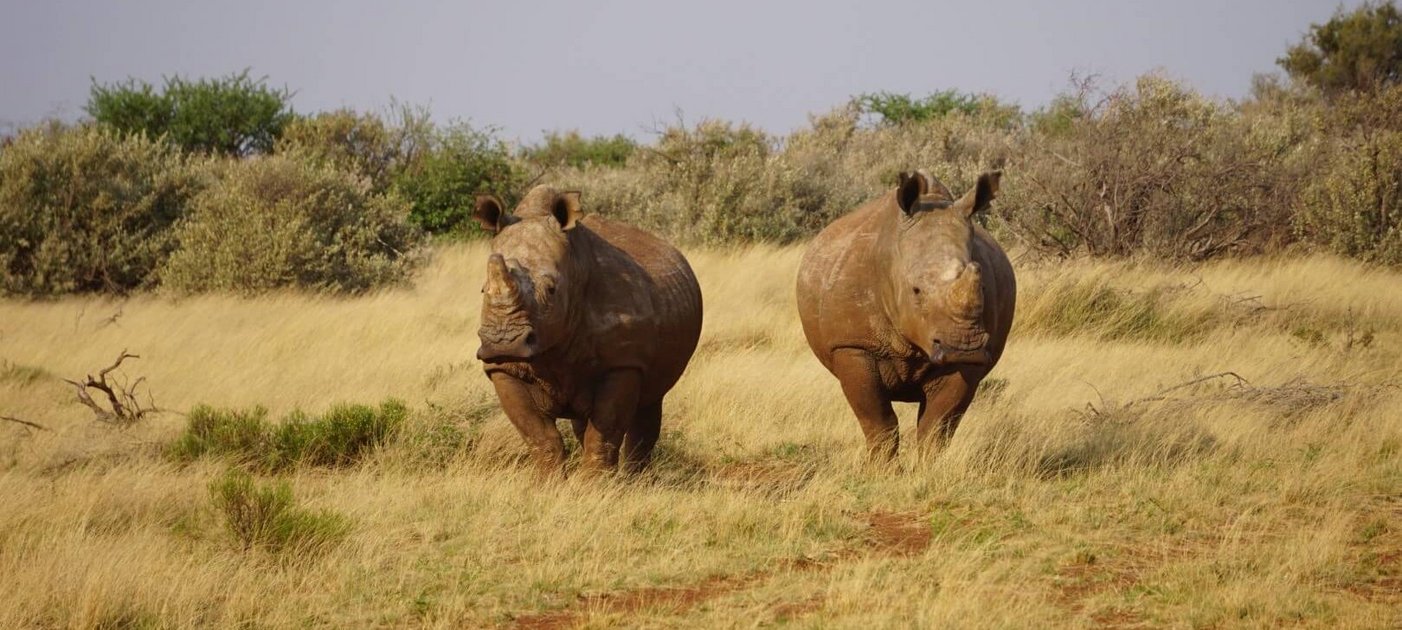- Research Institute of Wildlife Ecology /
- Research /
- Wildlife Medicine /
- Rhino Translocation
Leadership at the Research Institute of Wildlife Ecology: Dr. Friederike Pohlin
Wild rhinoceroses are often translocated for conservation purposes to expand their range, increase genetic flow or protect them from poaching. During translocation, rhinoceroses are exposed to several stressors such as unfamiliar handling, surroundings, noise, the movement of the transport vehicle, and the extended time standing. Usually, animals do not get offered water or food during translocations. In a preceding phase of this study, overall challenges to animal welfare associated with long-distance rhinoceros translocation were assessed and dehydration, a negative energy balance, muscle damage and a stress-induced immunomodulation were identified. Even though most animals appeared to clinically cope with prolonged water deprivation, the loss of total body water in particular could pose a serious risk to animal health and welfare. In order to improve rhinoceros conservation efforts, it is important to investigate measures that aim to reduce challenges to animal welfare during translocation, such as the administration of fluids. Measures of oxidative stress are promising cumulative indicators of animal welfare, as they link environmental stress with molecular aging, and need to be further explored.
The aim of this study is to assess the utility of 8-OHdG, an oxidative DNA damage marker, as an indicator for animal welfare during rhinoceros translocation and to investigate the effects of different fluid administration interventions on improving animal welfare during rhinoceros translocation.
Project partners
Prof. Leith Meyer, Dr. Marion Leiberich, University of Pretoria, Pretoria, South Africa
Duration 01.06.22-01.12.23
Sponsored by The Wild Animal Health Fund of AAZV, Yulee, Vereinigte Staaten (USA)
